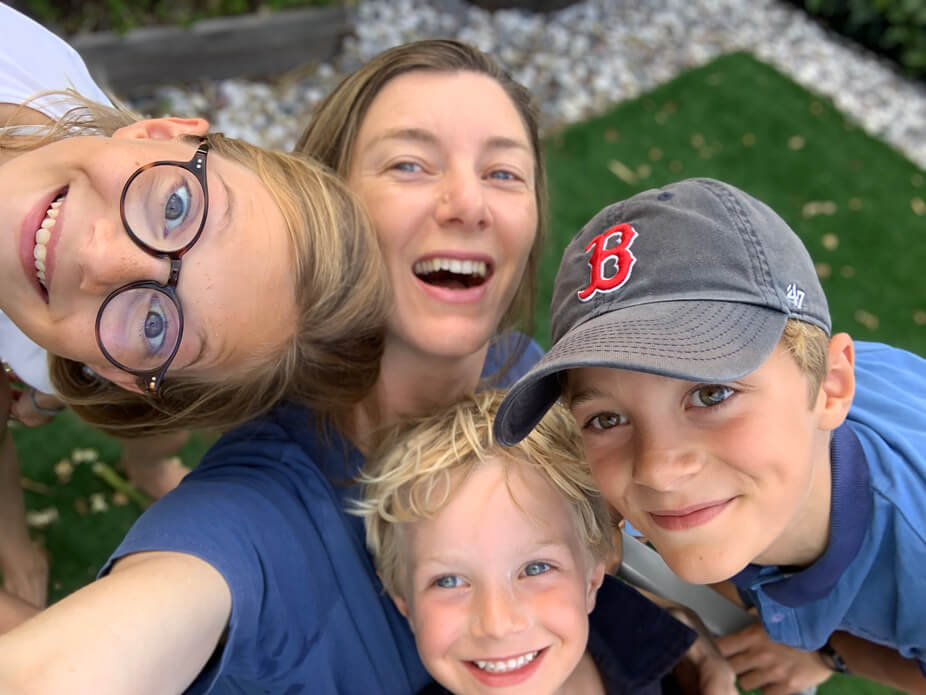#TeamVaccines
Juliette's Story
RSV Prevention
I’m Juliette, and I work in RSV prevention. RSV (respiratory syncytial virus) is a respiratory virus and the most common cause of bronchiolitis and pneumonia in infants and young children. It is also a cause of respiratory infections and hospitalizations in older adults.
Last year, more than 3 million children were hospitalised because of RSV all across the world. This makes RSV a leading cause of hospitalization for infants [1]. I know just how scary that can be because all three of my kids had RSV when they were younger.
I've worked in the biopharmaceutical industry for over 15 years. I’m determined to help protect more children from the harm RSV and childhood diseases can bring.
Why is childhood immunization so important?
Before childhood vaccines, infectious diseases were the leading cause of child death globally [2]. By 1990, more than 80% of the world’s population were protected from vaccine-preventable childhood diseases like tuberculosis, tetanus, diphtheria and whooping cough [3]. Moreover, the number of child deaths caused by vaccine-preventable diseases decreased from 5.1 million in 1990 to 1.8 million in 2017[4]. I hope we see this trend continue as scientists discover more vaccines and other innovative preventative solutions like monoclonal antibodies (mAbs) to prevent infectious diseases.
In addition to the human costs, childhood illness also poses a financial burden for countries. RSV, for example, puts a huge pressure on our global healthcare systems. In 2017, the costs of RSV associated infections in young children were estimated to be about $5 billion [5]. By contrast, there is evidence that, in general, vaccines likely save healthcare systems 10 times more than they cost [6].
Personally, I think my grandma summarised the importance of childhood vaccination best. In her words, “vaccines have changed what it is to be a mom.” As a parent myself, I'm so grateful that my children are protected from many of the ‘traditional’ childhood infectious diseases we see less and less of, thanks to immunization. But there are some - like bronchiolitis and pneumonia caused by RSV - for which we still need preventative solutions.
What preventative solutions are we working on?
In recent years, the industry has been looking at different kinds of preventative solutions, like monoclonal antibodies (mAbs). The body’s immune system naturally produces antibodies in response to infectious agents. Vaccines work by triggering the body to actively produce antibodies prior to infection, whereas mAbs are a type of immunization where people are directly given antibodies made in a lab.
Like vaccines, monoclonal antibodies help to fight off infectious agents by supplying antibodies rapidly before the natural immune response would normally kick in, making it more difficult for the virus to infect cells, copy itself and spread. My team is working on new preventative mAbs to protect infants entering their first winter - when they are most at risk from severe RSV disease.

How can vaccines and other preventative solutions help our children in the future?
Every child deserves a healthy start to their life, without the fear of getting sick from preventable diseases. We’ve come a long way since my grandmother’s time, but there is still much to be done. That’s why the biopharmaceutical industry continues to research and develop new innovations to prevent diseases like RSV.
I’ll never forget how worried I was when my children were sick with bronchiolitis, and I was so thankful when they, unlike many, recovered. It’s my hope that, thanks to new preventative solutions like vaccines and monoclonal antibodies, I can help other parents and families avoid such experiences.
New ways to keep children safe and protected
RSV Prevention
References and further links
- The race to make vaccines for a dangerous respiratory virus
- Why immunization must remain a priority in the WHO European Region
- Immunization coverage
- Progress made with vaccination
- The race to make vaccines for a dangerous respiratory virus
- Return On Investment From Immunization Against 10 Pathogens In 94 Low- And Middle-Income Countries, 2011–30